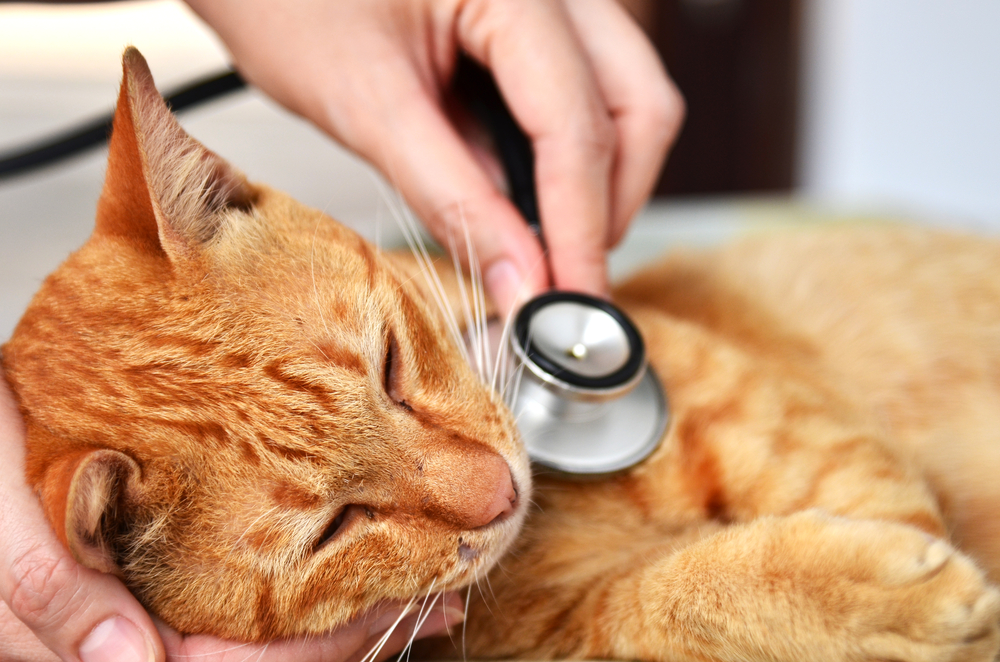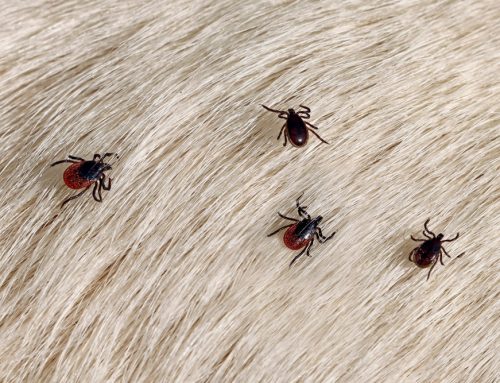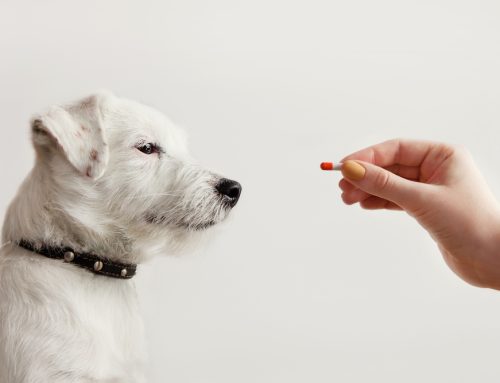You are likely familiar with your pet receiving their rabies vaccine, which most U.S. states require to protect people and animals alike from this life-threatening disease. However, you may be unfamiliar with the vaccines available to safeguard your cat and dog against other infectious diseases. Read our Best Friends Veterinary Care team’s guide to learn about your pet’s vaccinations, and how they protect your pet from common diseases.
What diseases do vaccines protect my dog from developing?
Dogs can develop a multitude of infectious diseases that are highly contagious and could be fatal. When you ensure your dog’s vaccinations are current, you help protect them from the following diseases:
- Canine distemper — An infected dog spreads canine distemper through direct contact with other dogs, who can also contract the virus indirectly by touching contaminated objects. The virus—which can be contagious for several months after initial infection—is shed through aerosolized droplets released from an infected dog’s eyes and nasal passages. The early canine distemper infection attacks a dog’s respiratory system, but in time, the virus infects the nervous system, including their brain. Signs can include:
-
- Difficulty breathing
- Sneezing
- Coughing
- Vomiting
- Diarrhea
- Thickened nose and paw pad skin
- Conjunctivitis
Distemper is often fatal, and if your dog survives a distemper infection, they will likely have lifelong neurological issues.
- Canine parvovirus — Parvovirus targets rapidly dividing cells, such as those in the digestive tract and bone marrow. Dogs can contract the disease through contact with contaminated feces and body fluids. Unvaccinated puppies and young dogs are most at risk for developing this potentially fatal condition, and some die despite aggressive treatment. Signs include:
-
- Lethargy
- Vomiting (often bloody)
- Diarrhea (often bloody)
- Dehydration
Parvovirus can progress rapidly, and if your puppy or unvaccinated dog displays these illness signs, they need immediate veterinary care.
- Canine adenovirus-type 1 — Dogs contract canine adenovirus-type 1 (i.e., infectious canine hepatitis) by ingesting infective urine, feces, or saliva. The virus typically targets dogs’ blood vessel linings, liver, kidneys, spleen, and lungs. Canine adenovirus-type 1 signs include:
- High fever
- Spontaneous bleeding and bruising
- Ocular inflammation
- Inappetence
- Eye and nasal discharge
Dogs who have recovered from canine adenovirus-type 1 can have long-term organ damage and corneal clouding.
- Leptospirosis — A bacterial disease that primarily affects a dog’s kidneys and liver, leptospirosis is transmitted through infected wildlife urine, and can thrive in standing water such as ponds and puddles. Depending on the affected internal organ, a dog who has leptospirosis can develop various signs, such as:
-
- High fever
- Lethargy
- Inappetence
- Bloody diarrhea and vomiting
- Jaundice
- Excessive thirst and urination
- Abdominal discomfort
Leptospirosis is a zoonotic disease, and you can contract this virus from your dog, so take precautions when cleaning up your pet’s urine if they have been diagnosed with this disease.
- Infectious tracheobronchitis — Multiple vaccinations are available to protect your dog from the various bacterial and viral strains that cause infectious tracheobronchitis (i.e., kennel cough). The canine adenovirus-type 1, parainfluenza, bordetella, and canine influenza vaccinations are effective at preventing your dog from developing serious respiratory infections that coughing dogs easily spread. If your dog contracts any kennel cough strain, they may display:
-
- Honking cough
- Runny eyes and nose
- Wheezing
- Decreased appetite
- Lethargy
The hacking cough associated with kennel cough occurs when your dog pulls on their leash, or when you pet their throat. An infectious tracheobronchitis cough can last for weeks.
- Lyme disease — An infected blacklegged (i.e., deer) tick transmits Lyme disease through their bite. Once in the bloodstream, the virus usually localizes in a dog’s joints and kidneys, causing these signs:
-
- Shifting leg lameness
- Lethargy
- Fever
- Inappetence
- Vomiting
- Weight loss
Lyme disease signs can take months to appear, and may recur after treatment, particularly when the recovered dog’s immune system is stressed.
What diseases do vaccines protect my cat from developing?
Although most pet cats always stay indoors, they can be exposed to numerous infectious diseases. Vaccinations help protect your cat from the following:
- Calicivirus — Cats infected with calicivirus have upper respiratory infections and oral ulcers. The virus can spread through an infected cat’s saliva or their nasal or eye secretions. Infected cats can show the following signs:
-
- Sneezing
- Nasal congestion
- Conjunctivitis
- Nasal or eye discharge
- Ulcers on the tongue, gums, hard palate, lips, or nose
- Anorexia
- Fever
- Enlarged lymph nodes
- Squinting
Cats infected with calicivirus can become carriers after recovery, showing no signs even though they actively shed the virus for months, and can continue to infect other cats.
- Feline herpesvirus-type 1 — The feline herpesvirus-type 1 (i.e., feline viral rhinotracheitis) causes upper respiratory infections, and is the most common conjunctivitis cause in cats. This infectious disease spreads easily through an infected cat’s saliva, and eye and nasal secretions. Feline herpesvirus signs include:
-
- Sneezing
- Nasal congestion
- Conjunctivitis
- Eye and nasal discharge
- Squinting
- Corneal inflammation and ulcers
- Fever
- Lethargy
- Anorexia
- Panleukopenia — Panleukopenia causes an extreme drop in an infected cat’s white blood cells, leaving them vulnerable to infection. Feline panleukopenia is similar to canine parvovirus, and a cat contracts this disease by coming in contact with any infected cat’s excretions—especially feces. Panleukopenia signs include:
-
- Depression
- Vomiting
- Diarrhea (possibly bloody)
- Eye or nasal discharge
- Sudden death
If the disease is diagnosed early and aggressive supportive care is provided, the infected cat has a good prognosis.

- Feline leukemia — Feline leukemia depresses a cat’s immune system, causing lifelong infection. The disease is a major cause of anemia and several cancers. Cats contract feline leukemia through the exchange of body fluids, which occurs through a bite. In addition, kittens can contract leukemia from their infected mother. Because feline leukemia weakens the immune system, infected cats are predisposed to many other illnesses, and associated signs vary widely. While feline leukemia is easily diagnosed, no treatment is available, and infected cats often die.
Many infectious diseases pets can contract are preventable, but only when they are appropriately vaccinated. Protect your furry pal by scheduling an appointment with our Best Friends Veterinary Care team, and ensure your pet’s vaccinations are current.








Leave A Comment